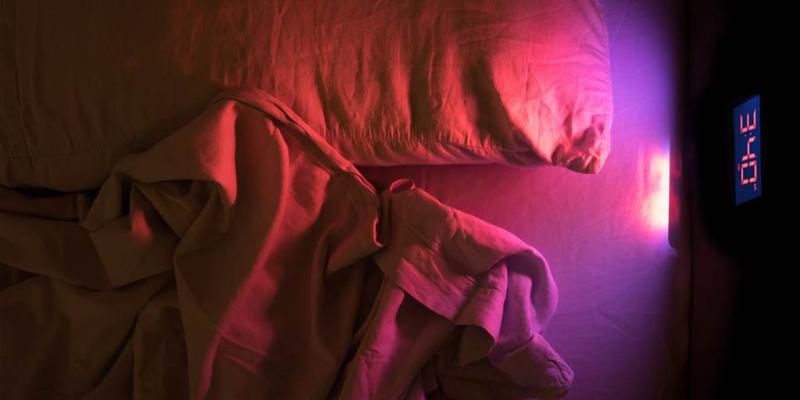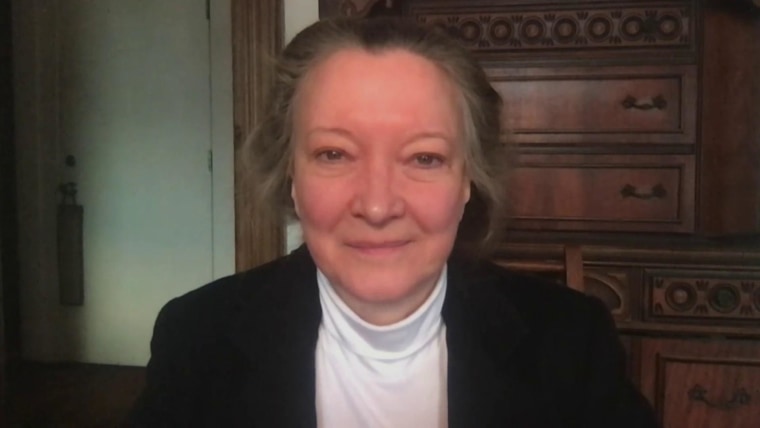Covid-19 pandemic and lockdowns leave their marks on people's dreams, study suggests



Oct. 1, 2020
Sleep should be a welcome respite from the day-to-day grind of all things 2020. But a new study suggests that even during slumber, the mind can't escape reality.
Research published Thursday in the journal Frontiers in Psychology finds many people are having pandemic-related dreams — and nightmares.
The study, conducted in Finland, surveyed 811 residents about six weeks into the country's Covid-19 lockdown. Over the course of a week, participants logged how much they slept, as well as the content of any dreams.
Nearly a third said they woke up more often at night compared to their pre-pandemic sleep patterns. More than a quarter had more nightmares, and nightmares tended to be more common among those who reported higher levels of stress.
What's more, researchers noted specific pandemic-related dream patterns. "Themes such as failures in social distancing, coronavirus contagion, personal protective equipment, dystopia, and apocalypse were rated as pandemic-specific," the study authors wrote.
"We don't really know what the biologic functions of dreams are," said Dr. Kevin Nelson, a neuromuscular neurologist affiliated with the University of Kentucky, who was not involved in the study.
"They've always been a fairly illogical way of processing the fears that haunt us during the day," Nelson said. "Dream content reflects our daytime fears."
Overall, the research suggested 33 different clusters of similar dream patterns, with more than half related to the pandemic.

Why are people having more vivid dreams during the coronavirus pandemic?
Dr. Deirdre Barrett, a psychologist at Harvard University, has collected more than 10,000 dream reports worldwide since the beginning of the pandemic. She, too, has found patterns that correlate with Covid-19 anxieties, such as dreams about becoming sick with the virus, and metaphoric dreams that include natural disasters or violence.
Early on in the pandemic, Barrett said many people dreamed of insects and monsters. "I noted several kinds of flying bugs, swarming," she said, adding some reported dreaming about "masses of wriggling worms coming toward them, or armies of cockroaches running toward them." (There were no reports of more innocuous insects, however, like lady bugs, Barrett said.)
One person reported a particularly scary nightmare that had direct ties to social distancing measures. The dream involved "being attacked by invisible monsters. When they killed one person, they could jump as far as 6 feet to another person," Barrett said.
While some people are able to control their dreams to a certain degree through lucid dreaming, that ability eludes most of us.
But there are ways to set the mind's mood, if you will, for the soundest, most relaxing sleep possible.
Avoiding things like watching the news and so-called doomscrolling, or going through bad news on social media late at night, would be high on Nelson's list of ways to prep the brain for bedtime.
He also suggests meditative techniques to "turn some of the mind off rather than ruminating about daytime concerns before you fall asleep."
Instead, Barrett recommends visualizing exactly what you want to dream about before bed. "It might be a favorite person who you're not able to be with during the pandemic, or a place you'd like to visit after the pandemic.
Pick one thing out to focus the mind, she said, "so there is a competing agenda."
To Jennifer Martin, a professor of medicine at the David Geffen School of Medicine at UCLA, having strange dreams after a crisis is pretty common.
"And believe it or not, a relatively normal part of how we respond to stress," Martin said.




I haven't noticed a problem with dreams, I rarely dream any more, in fact I even have trouble sleeping but I don't want to take any medication for that. I think that Trump supporters might start having nightmares these days.
I haven't had any issues with sleeping or problems with dreams either. I don't obsess over the news as I had learned a long time ago that MSM is first a for-profit enterprise and they learned early on how to use fear to increase their bottom line. More so in today's world where news comes online and those clicks mean more money in their coffers.
And I don't have any trouble sleeping or falling asleep. That was a gift from my years serving in the military, learning to fall asleep quickly and easily and I never lost that gift.
The only sleep problems I have had stem from the continued pain and discomfort of having a total replacement of my left knee on the 13th of August. As far as Covid-19 having anything to do with it, not at all. But then I am fortunate to live in the SE corner of Cochise County in a small rural community of Douglas right on the AZ/Mexico border that has actually been hit a lot less than other parts of the state and country.